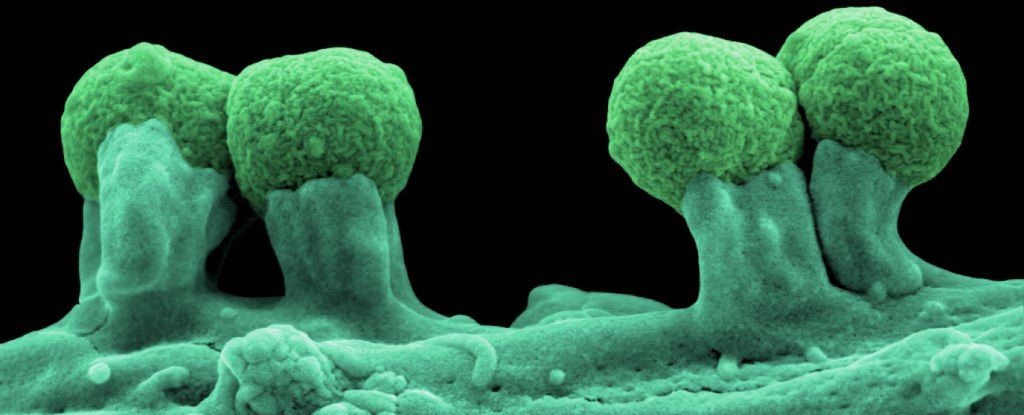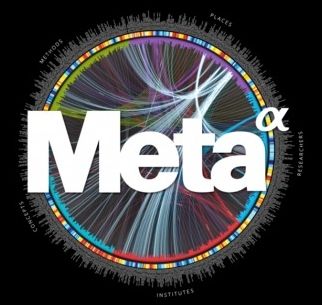Page 10525
Jan 24, 2017
Scientists are One Step Closer to Reversing the Aging Process Entirely
Posted by Shane Hinshaw in categories: biotech/medical, life extension
Jan 24, 2017
New Organisms Have Been Formed Using the First Ever 6-Letter Genetic Code
Posted by Sean Cusack in categories: bioengineering, biotech/medical, genetics
Scientists have engineered the first ever ‘semi-synthetic’ organisms, by breeding E. coli bacteria with an expanded, six-letter genetic code.
While every living thing on Earth is formed according to a DNA code made up of four bases (represented by the letters G, T, C and A), these modified E. coli carry an entirely new type of DNA, with two additional DNA bases, X and Y, nestled in their genetic code.
The team, led by Floyd Romesberg from the Scripps Research Institute in California, engineered synthetic nucleotides — molecules that serve as the building blocks of DNA and RNA — to create an additional base pair, and they’ve successfully inserted this into the E. coli’s genetic code.
Continue reading “New Organisms Have Been Formed Using the First Ever 6-Letter Genetic Code” »
Jan 24, 2017
Dlublin/changes: Keeping track of government in 2017
Posted by Mark Larkento in category: government
“Tracking changes since Trump has taken office”
A repo that will be updated over time.
Changes — Keeping track of government in 2017.
Jan 24, 2017
D-Wave’s $15 million quantum computer runs a staggering 2,000 qubits
Posted by Sean Brazell in categories: computing, quantum physics
For D-Wave, the path to quantum computers being widely accepted is similar to the history of today’s computers. The first chips came more than 30 years ago, and Microsoft’s Basic expanded the software infrastructure around PCs.
Quantum computers are a new type of computer that can be significantly faster than today’s PCs. They are still decades away from replacing PCs and going mainstream, but more advanced hardware and use models are still emerging.
“A lot of that is unfolding and will have a similar dramatic change in the computing landscape,” Vern Brownell, D-Wave’s CEO, said in an interview.
Continue reading “D-Wave’s $15 million quantum computer runs a staggering 2,000 qubits” »
Jan 24, 2017
Biologists just created the world’s first stable semi-synthetic organism
Posted by Klaus Baldauf in categories: bioengineering, biotech/medical
Created by a team of bioengineers, the semisynthetic organism has DNA made up of four natural bases and two manmade bases.
Jan 24, 2017
The First Medical Tricorder? The Big Viatom CheckMe Pro Review
Posted by Klaus Baldauf in categories: biotech/medical, health

The Big Viatom Checkme Pro Review: let’s see to what extent the device can bring the medical tricorder to life by measuring health parameters!
Jan 24, 2017
10 Reasons Why People Should Not Fear Digital Health Technologies
Posted by Klaus Baldauf in category: health

The development of digital health technology causes many concerns regarding bioethics. Here are 10 examples why people should not be afraid of, but rather embrace the advancements of such technologies.
Jan 24, 2017
Nanoparticles May Bring an End to Death
Posted by Shane Hinshaw in category: nanotechnology
A team of scientists engineered a nanoparticle to help remove the toxins found in a wide variety of snake bites. This could impact the estimated 4.5 million people who are bitten by snakes each year, and the 100,000 who die from the venom.
Jan 24, 2017
Chan Zuckerberg Initiative’s AI Acquisition Will Make Science Free for All
Posted by Shane Hinshaw in categories: biotech/medical, robotics/AI, science
Back in September, the Chan Zuckerberg Initiative – the philanthropic company set up by Facebook CEO Mark Zuckerberg and his wife, Dr. Priscilla Chan – set a goal to invest $3 billion to cure, prevent, and manage disease by the end of the century.
The company has taken a huge first step toward the objective by partnering with scientists, doctors, engineers, and other key stakeholders. With the acquisition of Toronto-based company, Meta, the team is moving even closer to their goal by creating tools and technology designed to empower the scientific community.
Meta is a research paper search engine that uses artificial intelligence (AI) to deliver the most relevant results to researchers. Following this acquisition, the Chan Zuckerberg initiative will enhance the service before eventually rolling it out for free.
Continue reading “Chan Zuckerberg Initiative’s AI Acquisition Will Make Science Free for All” »
















